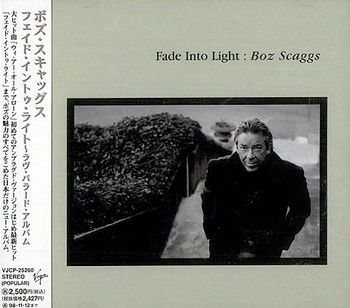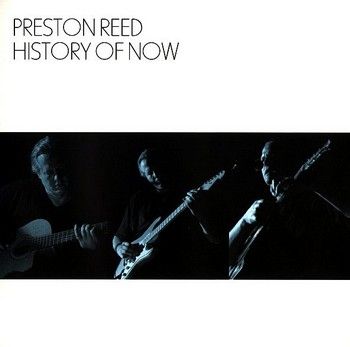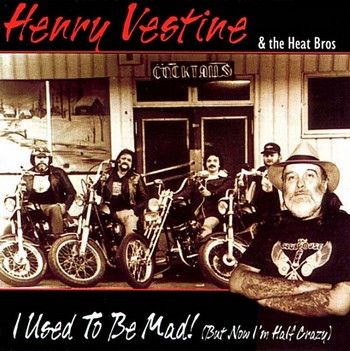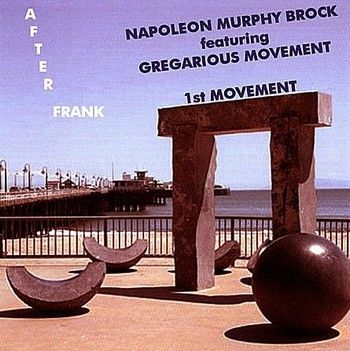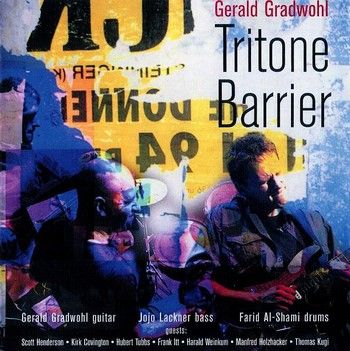
Gerald Gradwohl - Tritone Barriers - 2007 - ESC Records
Gerald Gradwohl from Austria is a guitarist of extraordinary depth and sensitivity. Gradwohl plays with the same kind of abandon as Scott Henderson, and is able to portray the same gracefulness as Frank Gambale, showing a solid command for his jazz meets rock guitar stylings, in part, he can play in technically demanding jazz/classical modes, and add enough rock mutations to separate him from the far less interesting players out there. "Tritone Barrier" is the follow up album to "ABQ" from 2003 feat. the late, talented saxman Bob Berg and the Tribal Tech rhythm section, Kirk Covington and Gary Willis - and you will be strucked by the freshness of playing, the variety of tunes and arrangements, and the musical scope of the album. With his new trio: Joe Lackner on bass and Farid Al-Shami on drums plus special guests: Scott Henderson (guitar), Kirk Covington (drums), Frank Itt & Harald Weinkum / bass, Gradwohl continues with another guitar masterpiece. The playing throughout is of course stunning. The compositions are varied in style - sometimes jazzy, heavy, complex, and funky - but always entertaining. It actually sounds like the musicians were really enjoying themselves while making such a wonderful album. With "Tritone Barriers" Gerald Gradwohl covers a lot of fusion territory, from straight-ahead, to funked up Tech, to slow jazz, to aggressive funk, to instrumental rock. © Jazz.com!
I can describe Gerald Gradwohl’s new Cd “Tritone Barrier” in just two words “Tasty”. It’s so good, it’s addictive. I can’t keep it out of my cd player. There’s so many good things about this recording, it stands very tall in the forest of new Fusion releases this year. One of the things that attract me to this Cd is the inventive, creative, and interesting compositions. Each one has its own uniqueness and like a really good mystery, you just can’t predict what’s coming next. It’s very fresh sounding. In addition to the surprises in the journey of each song, is the very powerful positive vibe you feel from beginning to end. It's got a strong Blues approach with a lot of variety, and it all makes for some great Fusion. The other thing that stands out is Gerald’s impressive control over dynamics and space. You can hear every note and follow each song as though it was a live recording. Often times, I found myself on the edge of my seat waiting to hear the next note. Too many Fusion albums rely on “formula” compositions and soloing, that it’s easy to understand why so many people say they all sound the same. Not this one!! It’s difficult to describe Gerald’s technique on guitar. If I were going to “build” a great guitarist, I’d start with a pinch of Robben Ford, throw in a dash of John Scofield, mix it all together with that Jeff Beck knack for being amazing note for note, and then let it marinate for many years in Gerald Gradwohl’s special blend. When it’s all finished, you’ve got yourself one fantastic guitarist. The song “Horses” is so funky, it sounds like the band flew to Oakland California, spent a few weeks on the streets and then recorded it. Just fantastic! Plus, if you’re going to have a Fusion Cd with a vocal, this is the perfect song for it. The “Hear and There” jam is what improvisation fans crave and done at an exceptional skill level. When I first heard the song “Jeff’s Back”, I wondered how Gerald could be skillful enough to sound EXACTLY like the amazing Scott Henderson. I listened in awe and then read the liner notes and realized it WAS Scott Henderson. He fit so perfectly in the overall project of Tritone Barrier the credit must go to Gerald for the idea of making that happen. This recording has everything you could ask for from a Fusion guitar trio. Lot’s of good songs, plenty of creative improvising, and mostly an amazingly deliberate and dramatic sense of dynamics that’s both quiet and loud without being boring or blaring. A solid 5-Star Fusion recording from beginning to end. Bonus: If you like Wah-Wah guitar, there’s some good stuff for you here… Please visit Gerald's website for more info © www.jazzrockworld.com, June 2007
Eight instrumental funk and jazz rock/fusion tracks and one vocal track (Hubert Tubbs sings "Horses") from the great Austrian guitarist, Gerald Gradwohl, helped out by artists including Scott Henderson, Frank Itt, Kirk Covington, and Hubert Tubbs. High calibre stuff and HR by A.O.O.F.C. Two of Gerald's favourite albums include Steely Dan's "Two Against Nature", and Wayne Krantz's "Greenwich Mean" albums. Listen to the Gerald Gradwohl Trio's "Sally Beth Roe" album, and check his website @ http://gradwohl.at/ for more detailed info on this great Austrian guitarist [Tracks @ 184-320 Kbps: File size = 88.4 Mb]
TRACKS
1 KiWa Walk
2 Wayne's Groove
3 Trouble In Da House
4 Horses
5 Here And There (Jam 3 and 2)
6 Jeff's Back
7 Downhill, Elephant, Trunk (Jam 1 and 4)
8 A Masing Hend
9 Praise
All tracks composed by Gerald Gradwohl
MUSICIANS
Gerald Gradwohl - Guitar
Scott Henderson - Guitar on "Jeff's Back"
Jojo Lackner - Bass
Frank Itt - Bass on "Jeff's Back"
Harald Weinkum - Bass on "Horses"
Farid Al-Shami - Drums
Kirk Covington - Drums on "Jeff's Back" & "Horses"
Thomas Kugi - Tenor Sax on "Horses"
Manfred Holzhacker - Trumpet on "Horses"
Hubert Tubbs - Vocals on "Horses"
SHORT BIO
Birthday: 15.04.1967: J.M.Hauer music school-classical guitar: Jazz guitar study in Vienna - diploma in 1989 w. first class honours: Teacher for jazz guitar at the Joseph Haydn Conservatory/Eisenstadt (A) since 1991: Teacher for electric guitar at the music school Eisenstadt (1993-98) : Head of Jazz department J.H. Conservatory Eisenstadt since 2006. Gerald Gradwohl played concerts and festivals all over the world: Wiesen, Montreal, Madrid, Mexico, Warschau, Washington, just to name a few. Highlights of his career are the collaboration with the grammy nominated TANGERINE DREAM, and his solo record ABQ that he recorded in 2002 with the great BOB BERG and the TRIBAL TECH rhythm section Gary Willis and Kirk Covington. On his recent CD “Sally Beth Roe”(2009) guitarist he pulls all the stops of his musical skills. “As much composition as necessary and as much improvisation as possible” seems to be the dogma and the point of view of fusion-music of today for this worldwide known and acknowledged composer and performer. © http://gradwohl.at/index.php?id=176&L=1
Check his website @ http://gradwohl.at/ for more detailed info on this great Austrian guitarist




